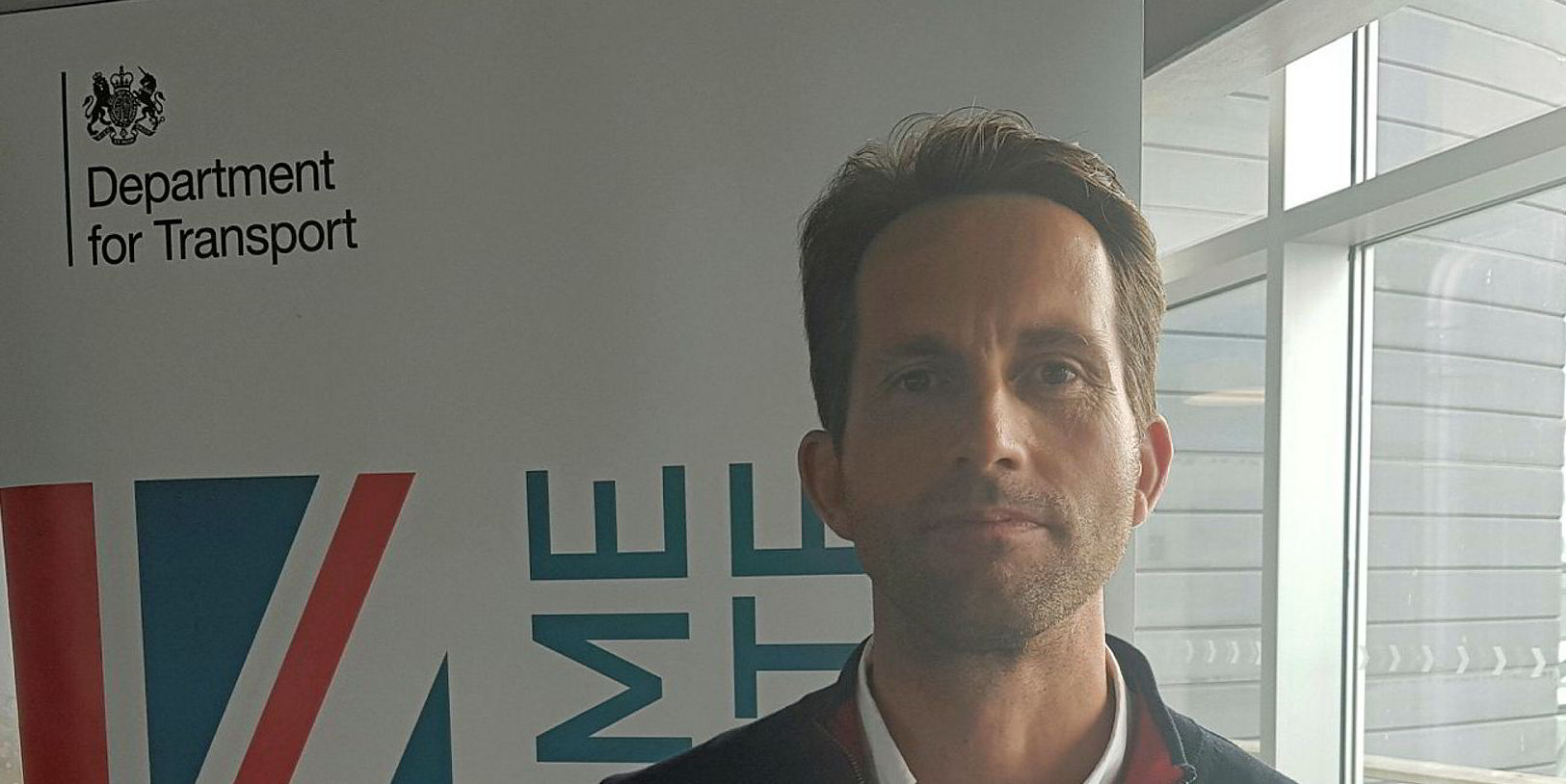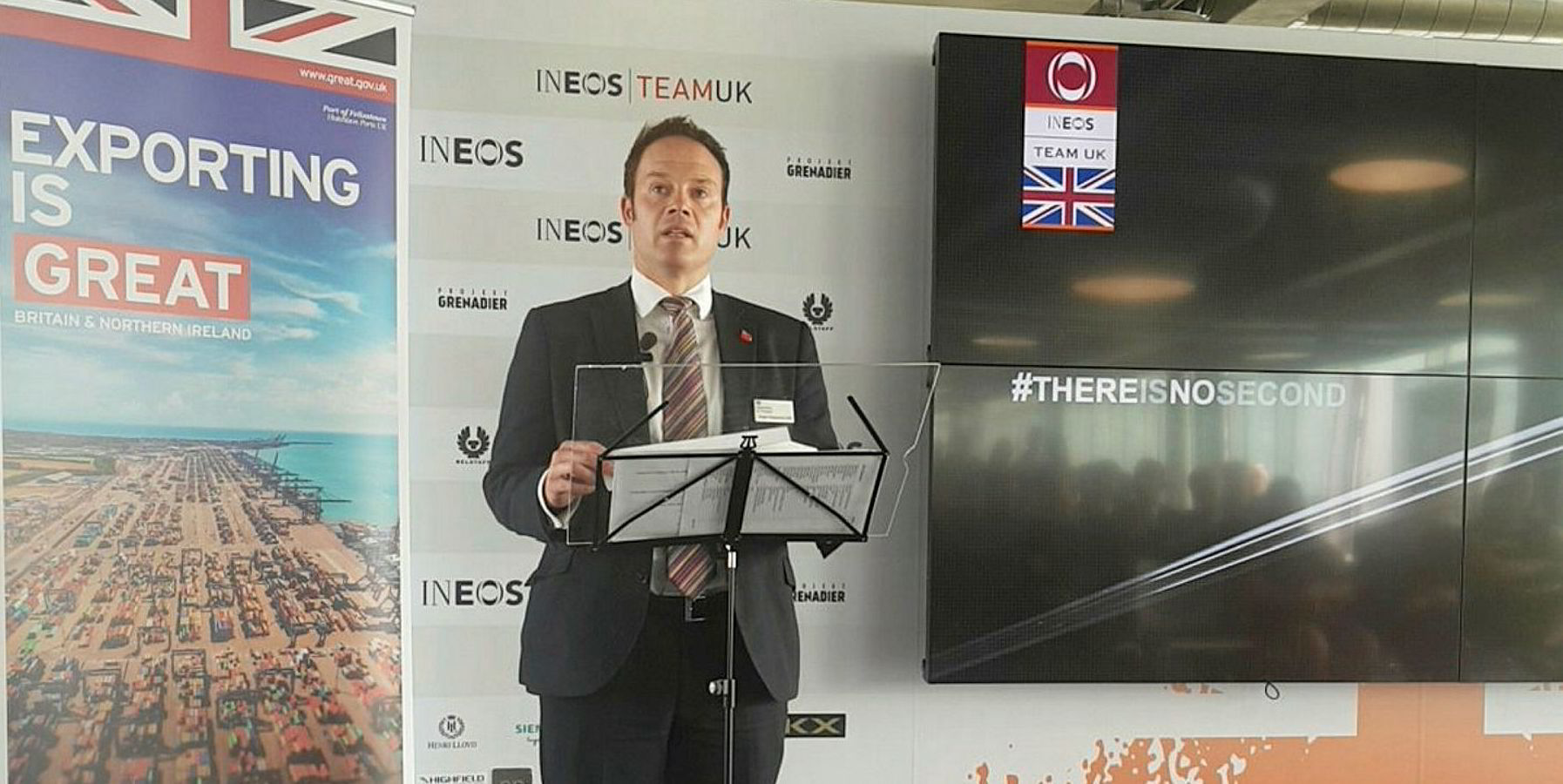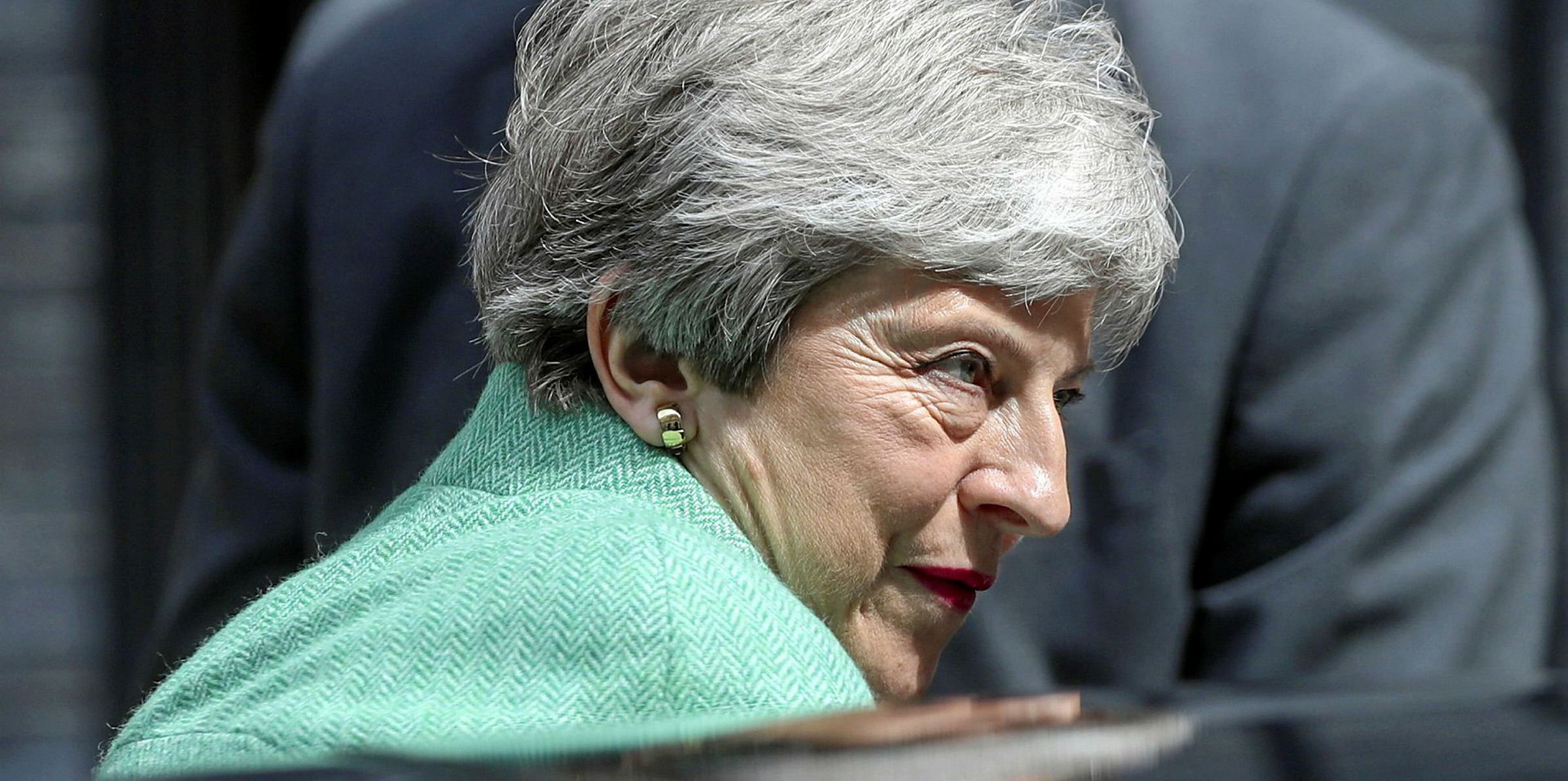Four-time Olympic gold medal winner and British sailing hero Ben Ainslie was on hand to add some glamour to proceedings at the launch of the UK government's annual maritime review in the historic port city of Portsmouth this week.
Ainslie was there to explain all about Team Ineos UK and its preparations for the 2021 America’s Cup, but the audience had gathered to hear if the UK had delivered over the past 12 months on targets outlined in its long-term Maritime 2050 strategy.
Turbulent times
The presentations were made as Brexit and a change of prime minister continue to place a big question marks over the government’s maritime policy and the UK’s trading future.
Amid the recently heightened political activity, last-minute parliamentary duties kept transport and maritime minister Nusrat Ghani from attending.
Speaking in her place, Department of Transport maritime director Roger Hargreaves conceded that the UK was going through a “time of turbulence,” but he insisted that Brexit issues would not distract from the long-term ambitions laid out in Maritime 2050.
“As a government, we are deeply ambitious for the maritime sector and are right behind it,” he said.
He said the UK wanted to build on the £14.5bn ($18.2bn) that the maritime sector contributes to the UK economy and the 187,700 people it employs.
Critical to the UK strategy is the development of technology and moves to reduce shipping’s environmental footprint. Research grants have been provided and the Centre for Smart Shipping has been established.
The withdrawal is certainly not about the quality of service shipowners are getting. Owners that have left have told us the service was very good
Maritime Coastguard Agency official
The government is also supporting technology body Maritime Research and Innovation UK. In addition, it recently launched its Clean Maritime Plan, which is developing policies to achieve carbon-free shipping.
Elephant in the room
But amid the talk of achievements, the elephant in the room was the seemingly disastrous effect Brexit is having on ship registration under the UK flag.
According to Clarksons, the UK flag has shrunk in gross tonnage terms by 32.3% over the past year to 10.8 million gt.
The decline is being attributed to a pre-emptive move by European-based owners ahead of Brexit.
To take advantage of tax breaks offered by the European tonnage tax, shipowners have to enter ships on a European Union register. Once the UK has left the EU, UK-registered ships will no longer be able to benefit from the tax breaks.

The targeting of UK-flag tankers in the Middle East Gulf by Iran, which recently led to the hijacking of the 50,000-dwt Stena Impero (built 2018), is another negative factor likely to deter owners from registering in the UK. Not only does it increase the security risk of such ships and will become less attractive in the charter market but they also face significantly higher war risk insurance costs.
“The withdrawal is certainly not about the quality of service shipowners are getting," one Maritime Coastguard Agency (MCA) official told TradeWinds. "Owners that have left have told us the service was very good."
Nevertheless, the decline is a big setback for UK maritime policy, which only two years ago sought to double the size of the UK flag fleet within five years.
Stemming the exodus
The UK has taken action to stem the flight from the UK flag. First of all, one of the Maritime Coastguard Agency’s highest-regarded executives, Katy Ware, has been brought in to lead the UK flag’s leading marketing campaign.
Eligibility criteria for the UK flag has also been widened in recognition of the need to bring in more owners from outside the EU.
“The changes will make the UK flag a truly international register in 2019,” the Department of Transport said in its annual review. A tonnage tax working group has also been set up to reform the UK system.

But the spectre of Brexit and the recent demise of the UK flag is hurting the country’s maritime ambitions in other ways. Hargreaves said part of the UK strategy is to become a “thought leader”, particularly on environmental matters, at the IMO.
Declining influence
However, a decline in the UK flag is likely to directly impact how much influence the UK can wield over international maritime regulation.
Brexit could also position the UK outside the powerful coalition of EU member states, which comes up with common positions on the key issues under discussion at the IMO.
But despite falling UK flag numbers, there do not appear to be any plans to offer the flag as an open register with lower regulatory standards than the EU after Brexit.
Instead, among the UK’s maritime ambitions there are plans to extend the minimum wage to all seafarers working in UK waters and UK-flag ships, improve maritime safety standards and to support safety probes through the UK Maritime Accident Investigation Branch.







